Vitamins play an important role in the health of the skin, help heal, soothe the skin and fight disease. It has been shown that vitamins, especially A, C, D, and E, have positive effects on the skin. I’m going to split the vitamins in two large groups, water-soluble and fat-soluble, to better explain their benefits and functions in the health of the skin and our organism in general.
Properties and uses of water-soluble vitamins
Vitamin C: It is an antioxidant that protects the body from many forms of oxidation and free radicals. Vitamin C has many functions in the body and one of them is the generation of collagen, a protein for the skin, promotes healing and tissue formation that acts to support the body, helps the body to cope with stress, keep defenses high and prevents the appearance of expression lines.
Vitamin B1: Helps to regulate the nervous system, the heart, and also the growth.
Vitamin B2: It is made of enzymes that help cells to produce energy, maintain the membranes, the skin, and oxygenation.
 Vitamin B3: Promotes the creation of neurotransmitters and contributes to the improvement of the circulatory system.
Vitamin B3: Promotes the creation of neurotransmitters and contributes to the improvement of the circulatory system.
Vitamin B5: Is in charge of purifying and detoxifying the body.
Vitamin B6: Contributes to the creation of red blood cells to transport oxygen in the body. It also helps to relieve the effects of premenstrual syndrome.
Vitamin B8: Favors the formation of glands producing hormones and the formation of the dermis.
Vitamin B9: Intervene positively in the cell multiplication, as well as in the development of the nervous system.
Vitamin B12: It is fundamental in the synthesis of DNA and RNA (nervous system, and genetics).
Properties and uses of fat-soluble vitamins.
Vitamin A: It is a great antioxidant and helps in the formation of hormones such as that generated by the adrenal glands. Maintains the overall health of the skin, this vitamin helps in the operation and repair of the skin cells.
Vitamin D: Often known as the “vitamin of brightness”, is essential for the production of proteins and calcium, which is vital for bone development. Promotes healing and skin health.
Vitamin E: Form tissues and is involved in fertility in a positive way. Works together with vitamin A to protect the skin from the sun’s rays and also helps to cure the structural damage of the skin, such as spots and stretch marks.
Vitamin K: Regulates the coagulation of the blood, and is important for muscle movement, the regulation of the energy, the water balance in the body and is used to shrink the veins capillaries.
The nutrients that the body needs for its proper functioning must be primarily in the food that we eat, however, if a food does not contain the necessary nutrients, an effective way to maintain good nutrition for our skin is through the consumption of vitamin and mineral supplements.
Benefits of vitamin C
Vitamin C is a powerful antioxidant that can neutralize free radicals, helps the process of natural regeneration of the skin, which helps your body repair damaged cells of the skin.
Then, in the same way that eating foods rich in antioxidants help the body fight off free radicals, antioxidants topics do the same thing for the skin by helping to offset the attackers daily damage and exposure to UV rays and air pollution.
This power to fight against free radicals is important not only to prevent the signs of premature aging, but also to neutralize free radicals. Vitamin C can also help to protect the skin from pre-cancerous changes caused by exposure to UV rays and chemicals.
Main benefits of vitamin C:
- The antioxidant properties are in the best interest of the vitamin C.
- Vitamin C has many amazing properties that speed up the healing process of the skin.
- Vitamin C helps promote collagen and elastin, which are fibers of natural proteins that help keep skin firm and strong, which helps to prevent premature aging of the skin.
- It also contains a property that inhibits the production of melanin in the skin which causes the discoloration of the skin, such as dark spots, and hyperpigmentation.
How vitamin C is good for all skin types?
- If you tend to have sensitive skin, I recommend starting with a lower concentration and also first try with an area to make sure no reactions with allergy.
Features vitamin C to your daily routine care of the skin.
The best product for skin care with vitamin C is a serum, because serums are more effective than creams and tonics.
Add other antioxidant such as vitamin E to the mix is another excellent way to increase the effectiveness of vitamin C. This combination can double the protection against the damage of free radicals. That is why often you will find the two antioxidants that are formulated together in serums.
Other forms of vitamin C that can be found in products for skin care are the ascorbate tetrahexildecil, phosphate and magnesium ascorbyl and the ascorbate metilsilanol.
How to use?
Remember: because vitamin C helps to protect the skin from pollution, uv light and free radicals, the best time to use it in the morning and not at night.
As a general rule for skin care, products for the care of the skin usually must be “thinner” to “thicker” in terms of consistency.
- Wash your face.
- Use a tonic. (Optional)
- Applying serum vitamin C.
- Apply a moisturizer (remember the rule of “finer to coarser”).
- Apply eye cream favorite.
- Apply sunscreen.
The good thing about serums with vitamin C is that it can be applied as a base layer under any product that you use in the morning.
I recommend to apply the serum of vitamin C every morning and then use the AHA and BHA at night several times a week.





